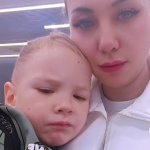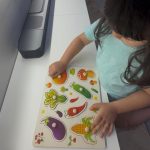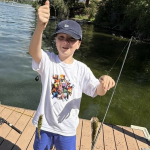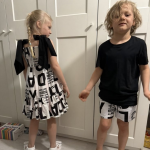Books About Autism: Self-Education for Parents
Understanding and Supporting a Child with Autism
To create a supportive environment at home for a child with autism, parents need to understand their child’s unique needs. While this isn’t always easy to achieve independently, fortunately, there is literature that helps fill the knowledge gap. Books written by people who have faced the challenges of raising autistic children—such as journalist Ellen Notbohm—are especially valuable. Some of her works are available in Russian, though they can be hard to find. The English versions, however, are widely accessible, often in digital formats, and can be translated using suitable programs if needed.
Recommended Reading: Practical Guides by Ellen Notbohm and Others
- Ten Things Every Child with Autism Wishes You Knew
In this book, Notbohm shares key advice on raising autistic children as they grow older. It serves as a long-term guide for parents, offering practical and emotional support through different stages of development. - 1001 Great Ideas for Teaching & Raising Children with Autism or Asperger’s
Essential for not only parents but also educators and caregivers, this book—co-authored with Veronica Zysk—actually includes over 1800 tips. These ideas help address autism and Asperger’s manifestations, assist in education, and support success at home, in school, and in society. - Ten Things Your Student with Autism Wishes You Knew
Widely praised by professionals, this book is designed for parents, teachers, and social workers. It provides insights into how autistic children think—especially school-age students—and helps develop effective communication and teaching strategies. - Autism in Toddlers and Small Children
This guide by A.K. Enns is aimed at helping parents carefully observe early signs of autism in young children. In addition to identifying symptoms, the book offers advice on how to ease these manifestations through diet, modern therapies, and technological solutions.
Why Reading About Autism Matters
Getting familiar with such literature is vital. Parents often focus on the challenges—social withdrawal, behavioral issues, sleep disorders—but forget that their child also has unique strengths. Books like these help parents recognize those strengths and create a comfortable, low-stress environment that supports the child’s development and emotional well-being.
Cellular Therapy: A Path Beyond Support
While books provide understanding, only targeted interventions can reduce or eliminate symptoms of autism. The most effective of these is cellular therapy, which involves the transplantation of stem cells—the body’s fundamental “building blocks” capable of transforming into other cell types and replacing damaged ones.
This safe, natural method helps normalize brain and nervous system functions. Improvements are often noticeable soon after the procedure and can last for a long time—frequently for life—enhancing the success of other therapies.
Cellular therapy has gained worldwide recognition and is already in use at leading clinics, including the Mardaleishvili Medical Center. The center is staffed by highly qualified specialists with extensive experience in stem cell transplantation and is equipped with cutting-edge technology.
A key advantage is the cost—treatment at this clinic is more affordable than in many developed countries. In addition, patients receive full assistance in travel planning, accommodation, and other logistical matters.
Cellular Therapy — The Most Effective Way to Treat Autism!
Autism Treatment Center Videos
Autism treatment with own stem cells
Cord blood association congress
International Quality Crown
Autism Treatment Reviews
Autism treatment with own stem cells
The story of Alessandro (6 years old)
Autism Patient Testimonial - Stem Cell Treatment
Clients Testimonials

Lidiya — Elina’s mother Read More

Anna – Sasha’s mother Read More

Amirkhon’s father — Tokhir Read More

Dilana’s mother Read More

Irina and Stefan – Ilya’s parents Read More












